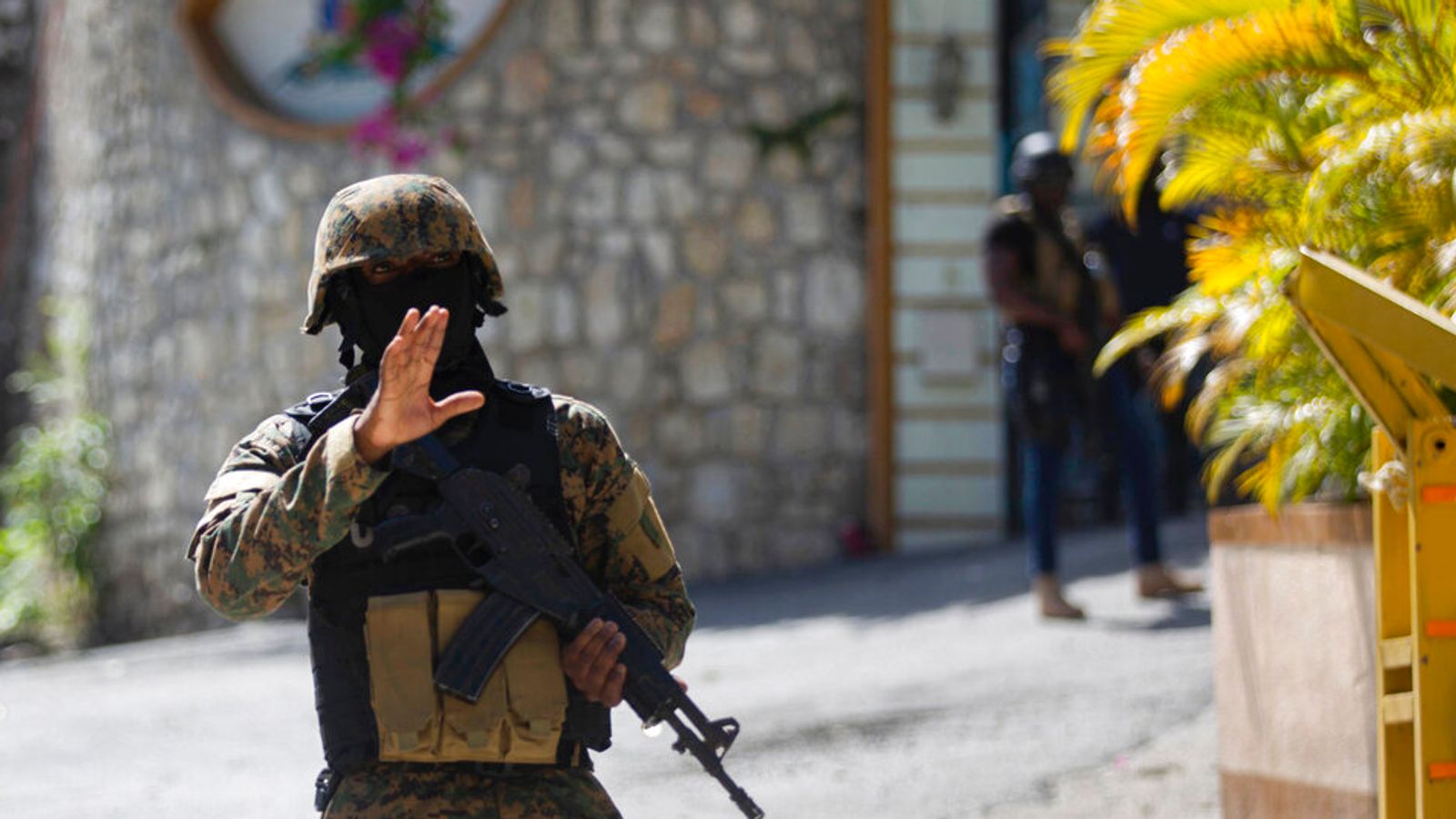Police in Haiti say they have killed four of the “mercenaries” who assassinated the country’s president, Jovenel Moise.
He was killed at his home in Port-au-Prince, the capital of the impoverished Caribbean island, in the early hours of Wednesday.
His wife was flown to hospital in Miami in a serious but stable condition, according to interim prime minister Claude Joseph.
Police General Director Leon Charles said late on Wednesday that as well as the four killed, two mercenaries had been captured and that security forces were involved in a fierce gun battle with the suspects.
“We blocked them en route as they left the scene of the crime,” he said.
“Since then, we have been battling with them. They will be killed or apprehended.”
Three officers held hostage by the gunmen had been freed, Mr Charles added.
Haiti’s ambassador to the US, Bocchit Edmond, said the attackers had pretended to be from the US Drug Enforcement Agency (DEA) as they raided the couple’s hilltop home.
The streets of Port-au-Prince were mostly deserted on Wednesday and local reports said a convoy taking Mr Moise’s body to the morgue was forced to divert due to roadblocks and gunfire.
The assassination of the 53-year-old has been condemned by world leaders, including President Joe Biden, who called it a “heinous attack” and said America was “ready to assist”.
A two-week state of emergency has been declared, with Mr Edmond claiming “foreign mercenaries” were responsible.
Interim leader Claude Joseph said they had spoken in English and Spanish, but the languages commonly spoken in Haiti are Creole and French.
Speaking in a TV address alongside the head of police, he urged Haitians: “I am calling for calm. Everything is under control. This barbaric act will not remain unpunished.”
The island of around 11 million is still rebuilding after a devastating earthquake in 2010, and in February Sky News’ chief correspondent Stuart Ramsay reported from Haiti on the violence and unrest gripping the nation.
Please use Chrome browser for a more accessible video player
Mr Moise had been in power since 2017 but many had wanted him to go.
There were regular protests and calls for him to resign over issues such as corruption allegations and claims he was mishandling the economy.
Mr Moise had claimed – without providing proof – that fellow politicians and corrupt businessmen were unhappy with his attempts to clean up government contracts and reform politics.






















